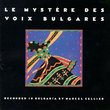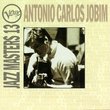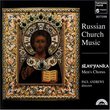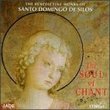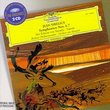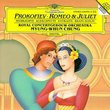| All Artists: Giuseppe Verdi, Orchestra e coro del Teatro alla Scala, Riccardo Muti, Luciano Pavarotti, Samuel Ramey, Cheryl Studer, Dolora Zajick Title: Verdi - Messa da Requiem / Studer, Zajick, Pavarotti, Ramey; Muti Members Wishing: 0 Total Copies: 1 Label: EMI Classics Release Date: 10/25/1990 Genre: Classical Styles: Opera & Classical Vocal, Historical Periods, Early Music Number of Discs: 2 SwapaCD Credits: 2 UPCs: 077774939027, 077774939058 |
Search - Giuseppe Verdi, Orchestra e coro del Teatro alla Scala, Riccardo Muti :: Verdi - Messa da Requiem / Studer, Zajick, Pavarotti, Ramey; Muti
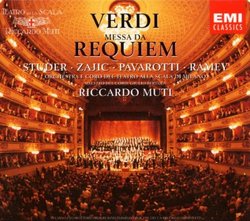 | Giuseppe Verdi, Orchestra e coro del Teatro alla Scala, Riccardo Muti Verdi - Messa da Requiem / Studer, Zajick, Pavarotti, Ramey; Muti Genre: Classical
![header=[] body=[This CD is available to be requested as disc only.]](/images/attributes/disc.png?v=15401716) ![header=[] body=[This CD is available to be requested with the disc and back insert.]](/images/attributes/disc_back.png?v=15401716) ![header=[] body=[This CD is unavailable to be requested with the disc and front insert at this time.]](/images/attributes/greyed_disc_front.png?v=15401716) ![header=[] body=[This CD is unavailable to be requested with the disc, front and back inserts at this time.]](/images/attributes/greyed_disc_front_back.png?v=15401716) |
Larger Image |
CD DetailsSimilar CDsSimilarly Requested CDs |
CD ReviewsBrilliant choral work, but CD not very economical pyramidcvv | Western US | 03/31/2007 (5 out of 5 stars) "The Verdi Requiem is probably the only Verdi composition where the chorus can get more applause than the soloists. Whether that actually happened in this live, June 1987 performance at La Scala, I don't know, but it wouldn't have surprised me. The chorus of La Scala is in very fine form. From the roar of the Dies Irae, to the hair-raising hyperkinetic Sanctus, to the hushed, expressiveness of the Libera Me chant, this chorus brings it all in this truly wonderful recording. All four soloists are a pleasure to listen to, delighting the ear with their big beefy sound while keeping the vocal theatrics to a minimum. Cheryl Studer went on to record this with Claudio Abbado in 1991; she sounds pretty much the same in both recordings, I think. I enjoyed listening to Samuel Ramey, and was quite satisfied with Dolora Zajic's fine work with Studer. Listeners may remember that Pavarotti was the tenor soloist in La Scala's 1967 Verdi Requiem recording with Leontyne Price, Fiorenza Cossotto, Nikolai Ghiaurov, and Herbert von Karajan. Twenty years separate these two performances, but he still sounds very satisfying here. By the way, this concert also takes place three years before another Italy concert, the big July 1990 "Three Tenors" show; this is a chance to hear Pavarotti before everyone got caught up in all the hype. A reviewer mentioned the speed of the Sanctus (brilliantly performed by the virtuosic La Scala choristers). At 2' 28", it is definitely one of the fastest, but I think the record belongs to Daniel Barenboim (2'23"). There is no filler. In a 2-disc set, 87 minutes of music is going to be a tough sell for the more economically challenged. I managed to purchase this online for $5.85. Nevertheless, this is a recording you won't want to miss; your efforts to obtain it will be amply rewarded." Muti reins things in (a little) the second time around Santa Fe Listener | Santa Fe, NM USA | 09/26/2006 (3 out of 5 stars) "In 1979 Muti made a Verdi Requiem so shocking in its assault that it made you either sit up and take notice or cover your ears and run from the room. The Gramophone sitll calls it one of the ten best ever recorded--they used to judge it the very best--and in 1987 Muti did a remake in digital sound. Basically his view remains unchanged, if slightly toned down. Tempos in the Dies Irae and Sanctus are faster than anyone else's (the Dies Irae takes barely 2 min.) Dynamics are deafeninly loud in the fortissimo passages and hushed to inaudibility in the pp passages, making for an overall impression of exaggerated histrionics.
I find it interesting that Muti has his chorus inflect Latin as if it were Italina, and operatic Italian at that, with little surges of emotion on every third syllable. All the soloists are first-rate. Pavarotti's voice is frayed compared to his prime--if you want to hear him at his best in the Ingemisco, turn to the Solti recording on Decca. Cheryl Studer doesn't seem to be ripping her voice to shreds as Scotto did on Muti's earlier version. You may be relieved or you may think she's not Italianate enough. In any event, with great recordings of the Verdi Requiem from Toscanini, Fricsay, Guilini (two each), De Sabata, Serafin, and Reiner, it's foolish to call either of Muti's readings the best. As for being among the ten best, okay, if you like a driven operatic approach." |

 Track Listings (11) - Disc #1
Track Listings (11) - Disc #1
